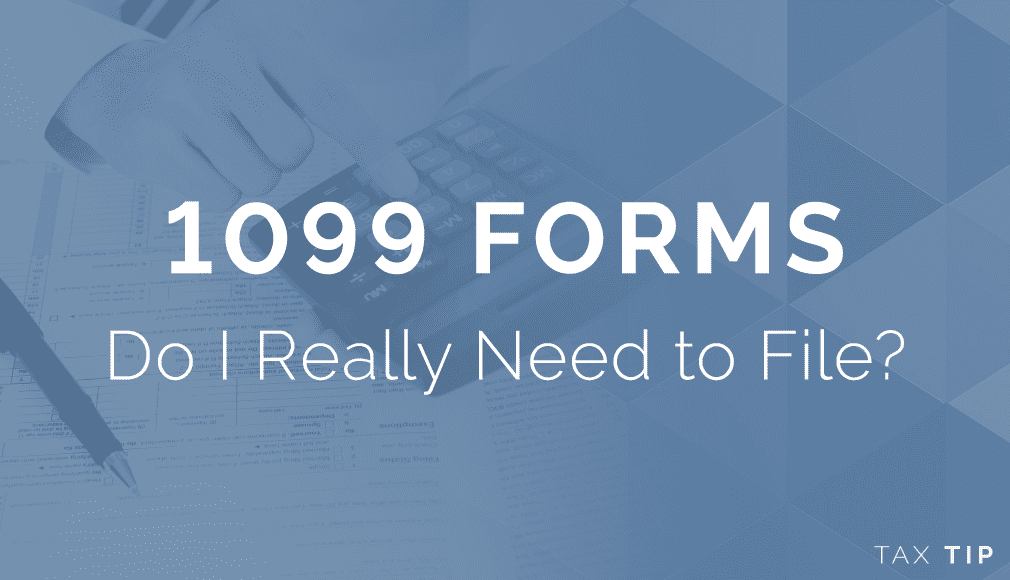

While there are several red flags that can lead to an audit, now is the time to be extra careful in avoiding Form 1099 missteps. Businesses have reported a noticeable rise in 1099 related audits, which can leave some of them on the hook to pay thousands of dollars.
A business must report payments for rents, prizes, or nonemployee compensation on a Form 1099-MISC if the aggregate payments made to an unincorporated recipient are at least $600 in a calendar year. Obviously, the reasoning behind this rule is to cut down on unreported income. If the payer tells the IRS about the payment, then the IRS will be expecting the recipient to report that income on his tax return.
Often, a vendor, supplier, or service provider will refuse to provide a tax identification number (TIN) in an attempt to avoid being issued a 1099 at the end of the year. This is almost certainly an attempt to evade tax by not reporting the income. A business should not put itself at risk by dealing with such individuals. Asking for a W-9 Form before you issue any payments will insure that you have the correct information when it is time to prepare the 1099s. If the payee fails to furnish a TIN, the business should withhold 28% of the payment as backup withholding and remit it to the IRS.
The penalty for not filing a correct information return by the due date is as high as $530 per information return for intentional disregard. Even an unintentional omission can carry a penalty of up to $260 for every 1099 that should have been filed. If a payer should have been collecting and remitting backup withholding, it can be held liable for the 28% tax in addition to the penalty. The penalty is reduced if a correction is made within 30 days, but this is unlikely to happen if the business is waiting for the IRS to “catch” them. Audits are usually conducted months or even years after the fact.
If selected for audit, the IRS will likely ask for a complete vendor listing as well as a list of all checks written during the year. They will compare this to the 1099s which were filed to look for missing forms. The business may also be asked to prove the corporate status of any incorporated payees for whom a 1099 was not required.
The IRS isn’t the only one looking at 1099s. State departments of labor also conduct audits. These audits will not only look for unreported payments, but they will also look to see if any nonemployee compensation should be reclassified as wages. The business would be then be liable for unpaid employment taxes as well as interest and penalties. Just because it is more convenient, and perhaps less expensive, to treat a payee as an independent contractor doesn’t mean that the facts support this treatment, even if the payer and payee mutually agree to the arrangement.
Don’t expose your business to the possibility of penalties for improper reporting of payments. If you are unsure whether a transaction or arrangement will trigger reporting requirements, the time to talk to your CPA is before the transaction occurs.
Contact us for guidance and application to your individual situation →


Associate Partner
Julie has over 20 years of experience in public and private accounting, representing varied clientele including the medical, legal, and real estate industries and trusts.
View Julie's Bio →